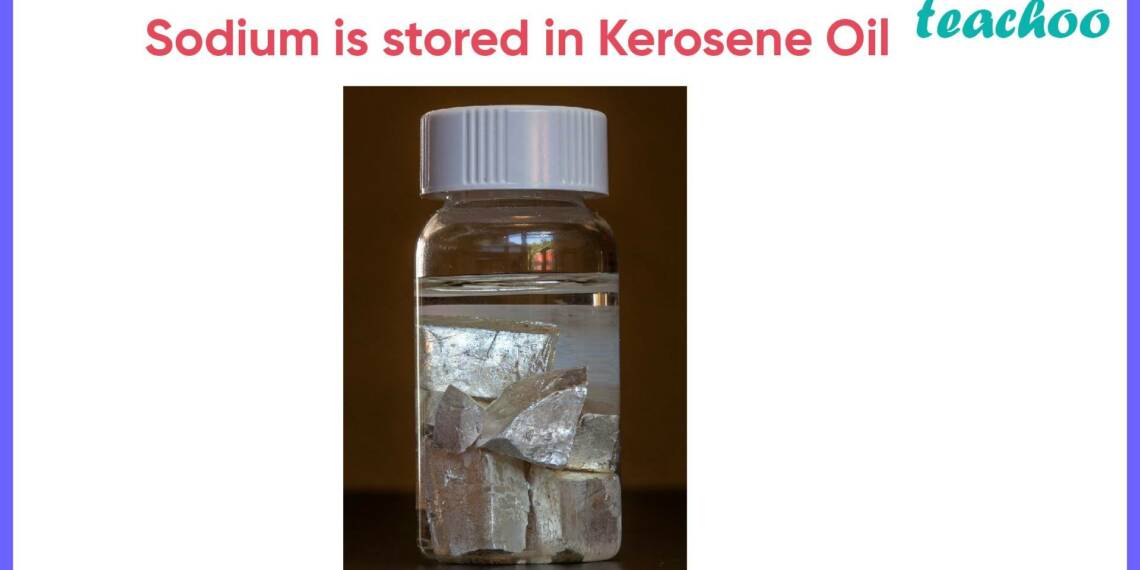Welcome to the blog guys in this article we are going to discuss about Why is sodium kept immersed in kerosene oil? Here you will get to know about definition of sodium. Please stay us with end do let us know in comment box which questions answer you are seeking. We will try to cover that too in our upcoming blogs.
Why is sodium kept immersed in kerosene oil?
Sodium, a highly reactive metal, is typically stored submerged in mineral oil (such as kerosene) to prevent it from reacting with air and moisture. The oil forms a barrier that blocks the metal from reacting with oxygen and water vapor in the air, which would cause it to ignite or corrode. The kerosene also helps to keep the sodium cool, which prevents it from overheating and potentially catching fire. Additionally, the oil helps to prevent the metal from becoming contaminated by dust or other particles in the air, which could lead to unwanted reactions. In summary, submerging sodium in kerosene oil helps to keep it stable, cool and clean.
Also Read: Who is the father of geography? Biography and Career
Definition of Sodium
Sodium is a chemical element with the symbol Na and atomic number 11. It is a highly reactive metal that is commonly found in nature in the form of various salts, such as sodium chloride (common table salt) and sodium bicarbonate (baking soda). Sodium plays a crucial role in the body, helping to regulate fluid balance, nerve and muscle function, and blood pressure. It is also used in a wide range of industrial and commercial applications, including food preservation and chemical manufacturing.
Also Read: What do you mean by subsistence intensive farming? 5 Benefits








